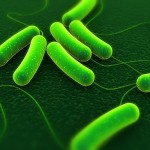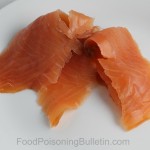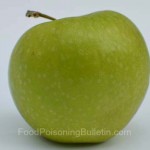Scientists at Western University have developed a new rapid-test system to detect E. coli O157 bacteria. This new test will help prevent recalls and outbreaks, since it can be used to discover contamination before the food leaves the plant and is shipped. The collaboration that developed this test is between Dr. Michael Rieder at the Robarts Research Institute at Western University and two London entrepreneurs. Currently, it can take up to three weeks for testing conducted on foods, especially ground meat products. After the initial test, most facilities test again for confirmation. Most facilities do not test-and-hold foods; rather, they conduct tests, then the food is shipped to retail locations. That's why recalls are so often issued. If a test comes back positive, a recall must be … [Read more...]
Use High Heat to Cook Meat? Rethink That Technique
A new study published in the journal Cancer has found that cooking beef at high temperatures may lead to an increased risk of developing kidney cancer. Carcinogenic compounds are created in the meat when grilled, barbecued, and pan-fried. The study was conducted at the University of Texas MD Anderson Cancer Center. Renal cell carcinoma affects 60,000 new patients every year. About 14,000 people die of this illness every year in the Untied States. The incidence of this type of cancer has been increasing for decades. Dr. Stephanie Melkonian, Epidemiology postdoctoral fellow and lead author of the study said, "this study encourages us to look not only at what foods we're eating, but also how we're preparing those foods." When you cook meat with high temperature, causing charring on the … [Read more...]
New Study Looks at Cost of Salmonella Illnesses
A new study published in Foodborne Pathogens and Disease looks at the cost of Salmonella outbreaks in the U.S. from 2000 to 2011. The study tried to quantify the burden of hospitalizations linked to Salmonella food poisoning, look at hospitalization characteristics among patients with salmonellosis, and examine the relationships between salmonellosis and cormobidities by outcome. Scientists used the Agency for Healthcare Research and Quality's Nationwide Inpatient Sample for 2011. The four outcomes measures that were studied included in-hospital death, total amount billed by the hospitals for services, length of patient stay in the hospital, and severity of the disease. There were 11,032 salmonellosis diagnosis in 2011 in the United States. Almost 7,500 were listed as the primary … [Read more...]
Study Finds Kitchen Utensils Can Spread Bacteria Between Foods
Food safety advice for home cooks has always included certain rules. Always wash your hands before preparing foods and after handling raw meats, poultry, and eggs; keep perishable foods refrigerated, and wash all utensils well after using them. But a new study conducted at the University of Georgia has found that utensils should also be washed after each use and before they are used on another food. Scientists found that the bacteria will "latch on" to utensils such as knives and graters and then contaminate the next food prepared with that item. But most consumers are not aware that this problem exists, according to the study's lead author Marilyn Erickson, an associate professor in the College of Agricultural and Environmental Sciences' department of food science and technology. … [Read more...]
Less Than Half of Consumers Wash Hands After Handling Eggs
A new study published in the Journal of Food Protection has found that only 48% of consumers wash their hands after handling raw eggs. Eggs can be contaminated with Salmonella bacteria, and that food-pathogen combination sickens thousands of Americans every year. Researchers were from RTI International, Tennessee State University, and Kansas State University. The study was partially funded by the Department of Agriculture's National Institute of Food and Agriculture. A 2013 web survey of 1,504 adult grocery shoppers was conducted. Based on self-reported data, most consumers store eggs in the fridge, as recommended, for no more than 3 to 5 weeks, as recommended.But after cracking eggs, 48.1% of respondents washed their hands with soap and water. And more than half of respondents … [Read more...]
New Research Uses UVC Light on Fruits to Kill Pathogens
New research conducted at Washington State University has found that ultraviolet C (UVC) light can kill foodborne pathogens on the surface of some fruits. This technology may be a good alternative for organic fruit processors who don't want to use chemicals on their products and must comply with the Food Safety Modernization Act (FSMA) standards to help prevent outbreaks. The study was published in the International Journal of Food Microbiology. WSU food safety specialist Shyam Sablani and his colleagues decided to look at UVC light since it has a shorter wavelength than UVA or UVB light. Sablani said in a statement, "UVC radiation is present in sunlight; however, it is completely absorbed by the ozone layer and Earth's atmosphere. It has germicidal properties and can be effective … [Read more...]
Study Links Meat to Klebsiella Pathogen
A study in the journal Clinical Infectious Diseases links the Klebsiella pneumoniae pathogen to retail meat products for the first time. This bacteria can cause pneumonia when inhaled, and can cause urinary tract infections and infections in the lower biliary trace and in wounds. In the 2012 study, turkey, chicken, and pork meats were sampled from nine major grocery stores in Flagstaff, Arizona where clinical samples from sick people were screened for this bacteria. Ten percent of the 1,728 positive human samples and 47% of the 508 retail meat samples yielded the bacteria. Many of the strains were resistant to antibiotics. Whole genome sequencing found that the Klebsiella isolated from the meat products and the Klebsiella isolated from patients were nearly identical. In other words, … [Read more...]














